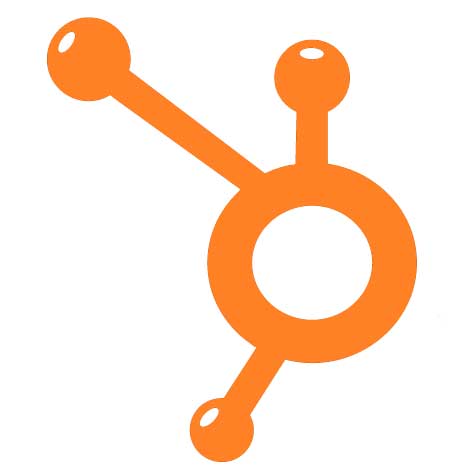[caption id="attachment_2817" align="alignleft" width="161" caption="From Mark Zuckerberg's private scrapbook"] [/caption]
[/caption]
This summer saw scams on the elderly based on information they had placed on Facebook. This fall a Federal Trade Commission investigation sanctioned Facebook for how it protected users’ information and pictures. Facebook agreed to let users “opt into” changes altering how their personal information it shared with advertisers and other users.
At the same time Facebook co-founder Mark Zuckerberg’s own private Facebook site was hacked. See The Telegraph, (12.18.11)http://www.telegraph.co.uk/technology/facebook/8938725/Facebook-privacy-flaw-exposes-Mark-Zuckerberg-photos.html.
Zuckerberg was seen in a series of candid shots with his girlfriend and his Hungarian sheepdog puppy. The pictures were posted anonymously on an image sharing website under the heading “It’s time to fix those security flaws Facebook.”
The 27-year old Zukerberg said in a blog post that “even if our record on privacy were perfect, I think many people would still rightfully question how their information was protected.”
“It’s important for people to think about this, and not one day goes by when I don’t think about what it means for us to be the stewards of this community and their trust,” he added.
Will either the FTC or Zuckerberg getting hacked affect how Facebook protects people’s privacy? Declan McCullagh, chief political correspondent for CNET, wrote an article whose title gives the answer, “Facebook’s FTC settlement won’t change much, if anything.” See (11.29.11)http://news.cnet.com/8301-31921_3-57333398-281/facebooks-ftc-settlement-wont-change-much-if-anything/?tag=mncol;txt .
McCullagh quoted Marc Rotenberg, executive director of the Electronic Privacy Information Center, that the proposed settlement “does not rectify the original problem.” The problem is that Facebook originally only allowed photos, wall posts and lists of friends to be visible only to the people the user was associated with. Now the default settings include everyone on the internet.
Rotenberg said, “Our concern was with the change in the default settings—that’s the part that was clearly unfair” and therefore unlawful.
People are now doubly concerned since Facebook’s Timeline has become live. In a recent USA Today titled, “Facebook Timeline’s here: Users have 7 days to edit profiles” (12/15/11), R. “Ray” Wang, CEO at Constellation Research was quoted as saying, “There is a growing concern among individuals that Facebook is driving individuals to trade their privacy for convenience without understanding the risks. Can individuals turn it off forever if Facebook still owns the data? What do you do to take yourself out of a Timeline? Is this the beginning of digital extortion?”
Zuckerberg in the USA Today article said that Timeline is a way to share life experiences. But it could also become a carrot for marketers and advertisers to target consumers based on their “likes” and devotion to certain brands as Facebook duels with Google+ and other social media for advertising dollars, analysts say.
Can you turn off Facebook forever if you want to? Will Facebook still own and mine the data? How can a person keep from being scammed or hacked? Please weigh in with your thoughts in the comment box below.
 [/caption]
[/caption]This summer saw scams on the elderly based on information they had placed on Facebook. This fall a Federal Trade Commission investigation sanctioned Facebook for how it protected users’ information and pictures. Facebook agreed to let users “opt into” changes altering how their personal information it shared with advertisers and other users.
At the same time Facebook co-founder Mark Zuckerberg’s own private Facebook site was hacked. See The Telegraph, (12.18.11)http://www.telegraph.co.uk/technology/facebook/8938725/Facebook-privacy-flaw-exposes-Mark-Zuckerberg-photos.html.
Zuckerberg was seen in a series of candid shots with his girlfriend and his Hungarian sheepdog puppy. The pictures were posted anonymously on an image sharing website under the heading “It’s time to fix those security flaws Facebook.”
The 27-year old Zukerberg said in a blog post that “even if our record on privacy were perfect, I think many people would still rightfully question how their information was protected.”
“It’s important for people to think about this, and not one day goes by when I don’t think about what it means for us to be the stewards of this community and their trust,” he added.
Will either the FTC or Zuckerberg getting hacked affect how Facebook protects people’s privacy? Declan McCullagh, chief political correspondent for CNET, wrote an article whose title gives the answer, “Facebook’s FTC settlement won’t change much, if anything.” See (11.29.11)http://news.cnet.com/8301-31921_3-57333398-281/facebooks-ftc-settlement-wont-change-much-if-anything/?tag=mncol;txt .
McCullagh quoted Marc Rotenberg, executive director of the Electronic Privacy Information Center, that the proposed settlement “does not rectify the original problem.” The problem is that Facebook originally only allowed photos, wall posts and lists of friends to be visible only to the people the user was associated with. Now the default settings include everyone on the internet.
Rotenberg said, “Our concern was with the change in the default settings—that’s the part that was clearly unfair” and therefore unlawful.
People are now doubly concerned since Facebook’s Timeline has become live. In a recent USA Today titled, “Facebook Timeline’s here: Users have 7 days to edit profiles” (12/15/11), R. “Ray” Wang, CEO at Constellation Research was quoted as saying, “There is a growing concern among individuals that Facebook is driving individuals to trade their privacy for convenience without understanding the risks. Can individuals turn it off forever if Facebook still owns the data? What do you do to take yourself out of a Timeline? Is this the beginning of digital extortion?”
Zuckerberg in the USA Today article said that Timeline is a way to share life experiences. But it could also become a carrot for marketers and advertisers to target consumers based on their “likes” and devotion to certain brands as Facebook duels with Google+ and other social media for advertising dollars, analysts say.
Can you turn off Facebook forever if you want to? Will Facebook still own and mine the data? How can a person keep from being scammed or hacked? Please weigh in with your thoughts in the comment box below.
Jaco Grobbelaar, owner of BroadVision Marketing, helps business owners and business professionals put marketing strategies in place that consistently secure new clients. He can be reached at jaco@broadvisionmarketing.com or 707.799.1238. You can “Like” him at www.facebook.com/broadvisionmarketing or connect with him on www.linkedin.com/in/JacoGrobbelaar.
Related articles
- Facebook Timeline Now Available for All (VIDEO) (blippitt.com)

